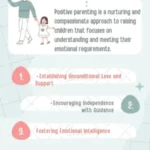How often have you heard someone lament about “kids these days” and their perceived lack of manners or gratitude? In a world filled with distractions, instilling the virtue of gratitude in children becomes increasingly important. Let’s explore seven easy and effective ways to teach your children to appreciate the blessings in their lives.
1. Setting the Right Example
Children learn best by example. Expressing gratitude yourself, using appropriate words at the right times, creates a lasting impression. Saying “Thank You” to your two or three-year-old might seem simple, but it lays the foundation for their understanding of gratitude. Remember, “Children Learn What They Live!”
2. Role Playing
Engage your children in interactive games that involve role-playing scenarios centered around gratitude. Take turns being on the receiving end of an unexpected “Thank You.” This playful approach helps them understand the positive impact of expressing appreciation.
3. Being of Service to Others
Teach gratitude by showing your children how to be of service to others. Simple acts, such as holding a door for an elderly person, demonstrate the appreciation others have for our actions. These small gestures not only help others but also create a sense of fulfillment in your children.
4. Making a List
Introduce your children to “The Daily Gratitude Journal Software.” This tool encourages them to make lists of things they are thankful for. With versions designed for both kids and adults, it’s an excellent way to cultivate the habit of acknowledging and appreciating the positive aspects of their lives.
5. Teaching Gratitude During Hard Times
Utilize challenging situations, such as power outages or other inconveniences, to teach gratitude. By highlighting what they usually take for granted, like lights and heat, you can help them understand the value of these everyday amenities.
6. Appreciating the Little Things
Draw attention to the little things in life that often go unnoticed. Simple daily occurrences, such as having food to eat, friends to play with, or an abundance of toys and school supplies, deserve gratitude. Contrasting their lives with those less fortunate provides valuable perspective.
7. Seeing Good in Those They Don’t Like
Transform negative experiences into opportunities for gratitude. Encourage your children to find positives even in challenging situations. The concept of the “Glad” game, as portrayed in the movie “PollyAnna,” can serve as a delightful and educational family activity.
As you go about your day, point out the unsung heroes—police officers, firefighters, and essential workers. Expressing gratitude for these daily activities creates a habit that your children will learn and emulate.
Conclusion
Instilling gratitude in your children is an ongoing process that yields lifelong benefits. By setting the right example, engaging in interactive activities, and emphasizing appreciation for both big and small things, you equip your children with a valuable mindset. Teaching them to be thankful not only enhances their personal well-being but also contributes positively to the world around them.
FAQs:
Q: How early can I start teaching gratitude to my child? A: It’s never too early to start. Simple acts like saying “Thank You” and expressing appreciation can begin in infancy.
Q: Will teaching gratitude make my child less ambitious? A: No, gratitude complements ambition. Grateful individuals often approach challenges with a positive mindset, enhancing their ability to overcome obstacles.
Q: Can gratitude be taught through technology? A: Absolutely. The “Daily Gratitude Journal Software” is a great tool





